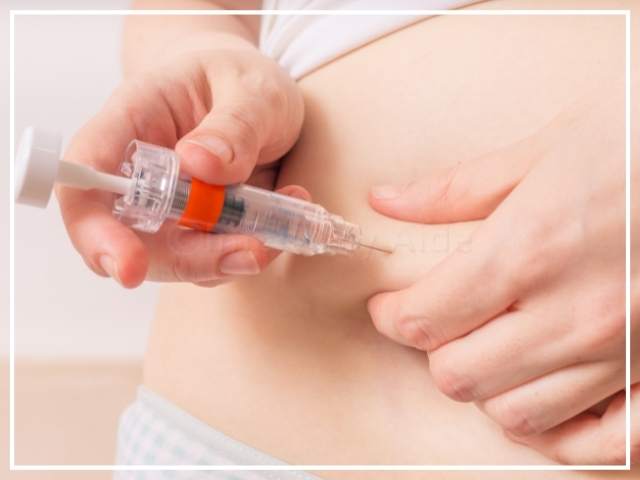After Kentucky woman developed serious complications from the medications administered during her IVF cycle, many potential patients were left asking “are IVF drugs safe?”
24-year-old Logan Andreotta was told that she made an ideal candidate for in vitro fertilization as she was young and in excellent health. But just three days into the treatment, the drugs caused an adverse reaction in her body—her ovaries swelled up with 50 eggs.
Normally a woman’s ovary releases one egg a month. In an IVF cycle the ovaries are first stimulated with hormonal drugs with the expectation of collecting 8-15 eggs.
With 50 eggs, Andreotta’s ovaries had four years’ worth of eggs at one time. “I felt like my insides were going to bust out of my stomach,” she recalled.
What happened to Andreotta was ovarian hyper stimulation syndrome (OHSS). It is a rare complication of IVF drugs that can be potential fatal.

Is IVF dangerous?
The first IVF baby was born 40 years ago, and since then over 8 million children have been born worldwide with this technology. These children and their parents have been leading normal lives, and there are very few reported complications from IVF, so IVF is not dangerous.
OHSS is a potentially life-threatening but mostly preventable complication, according to research published in the Women’s Health Journal (1).
Other researchers have theorized that the drugs used for controlled ovarian stimulation (COS) could potentially lead to endocrine system disorders, heart disease, depression, and various other conditions but these reports remain inconclusive and debatable.
How safe are IVF medications?
IVF drugs and OHSS
While it is serious, OHSS is not common and perhaps that is the reason why so little is invested in serious research over this.
OHSS may not be as uncommon as the industry believes because the available data suggests the incidence is (2):
- Mild OHSS – 20%–33% of the cases but since it only causes mild discomfort, nausea, or diarrhea in the patient, it is not considered a serious threat.
- Moderate degree – 3%–6% of IVF cases
- Severe OHSS – 0.1%–2% of cycles
Data collected between 2006 and 2014 shows that while IVF numbers have gone up, the number of women seeking emergency care for OHSS has significantly reduced (3).

Can IVF drugs cause cancer?
There have also been concerns over IVF drugs causing cancer, but the data collected by doctors on this subject rejects the association between IVF and breast cancer, ovarian cancer, cervical cancer, or cancer of any other part (3).
Can IVF drugs cause stroke?
A large cohort study of 4,700 women in Taiwan found that infertility treatment was associated with a 66% increased risk of stroke hospitalization (4) in the 12 months after the delivery. However, other studies refuted these findings.
Ovarian hyperstimulation causes the release of prothrombotic factors, which may be responsible for the increased incidence of haemorrhagic stroke.
On studying the patients further, researchers also found that even before starting infertility treatments, some patients that face infertility might have a somewhat increased risk for the development of stroke or CVD in future.
Do IVF drugs have long term effects?
ART is only a 40-year-old industry and data is limited but from what we have available today, there does not seem to be any major long-term risk to IVF patients.
Alan Penzias, an associate professor at Harvard Medical School who chairs the practice committee of the American Society for Reproductive Medicine (ASRM), says he has been “reasonably reassured” that the drugs used in ART pose no long-term threat to the patient’s health.
“We’re at a time point when, if there were anything major, we would have seen it by now,” he said. “Fortunately, we haven’t seen anything negative.”
Do fertility drugs affect the baby?
Children born from fertility treatments were frequently found to have pre-mature-birth and consequent low birth-weight.
Low birth-weight is seen as an early predictor of mental development.
The researchers found an increased risk of mental disorders in children born after ovulation induction during their childhood or adolescence (6). The overall risk was low and it is not clear if it is from ovarian stimulation or possible from the parental factors that first caused infertility.
So, are IVF drugs safe? The limited data we have so far suggests that IVF is a safe treatment when performed carefully under an expert’s guidance. To consult a top fertility expert for your IVF concerns, get in touch via the form on this page.
References
- El Tokhy O, Kopeika J, El-Toukhy T. An update on the prevention of ovarian hyperstimulation syndrome. Women’s Health. 2016;12(5):496-503. doi:10.1177/1745505716664743
- El Tokhy, O., Kopeika, J., & El-Toukhy, T. (2016). An update on the prevention of ovarian hyperstimulation syndrome. Women’s health (London, England), 12(5), 496–503. https://doi.org/10.1177/1745505716664743
- A.S. Kelley, S.B. Schon, E.S. Constance, R.M. Baker, K. Bak, E.E. MarshAn assessment of emergency department visits for ovarian hyperstimulation syndrome (OHSS): have we improved? DOI: https://doi.org/10.1016/j.fertnstert.2017.07.237
- Kroener, L., Dumesic, D., & Al-Safi, Z. (2017). Use of fertility medications and cancer risk: a review and update. Current opinion in obstetrics & gynecology, 29(4), 195–201. https://doi.org/10.1097/GCO.0000000000000370
- Sachdev D, Yamada R, Lee R, Sauer MV, Ananth CV. Risk of Stroke Hospitalization After Infertility Treatment. JAMA Netw Open. 2023;6(8):e2331470. doi:10.1001/jamanetworkopen.2023.31470
- Bay B. (2014). Fertility treatment: long-term growth and mental development of the children. Danish medical journal, 61(10), B4947. https://pubmed.ncbi.nlm.nih.gov/25283630/
Reviewd by: Dr. Meenakshi, PhD